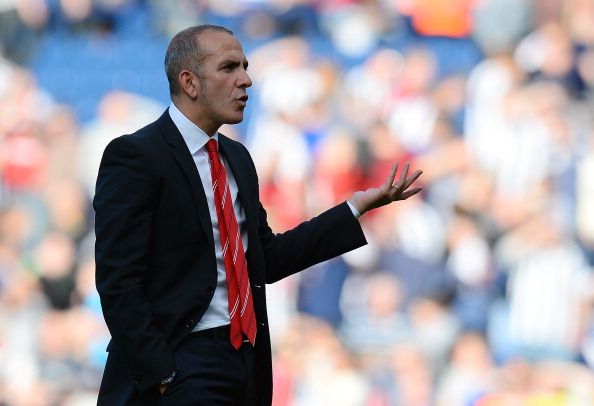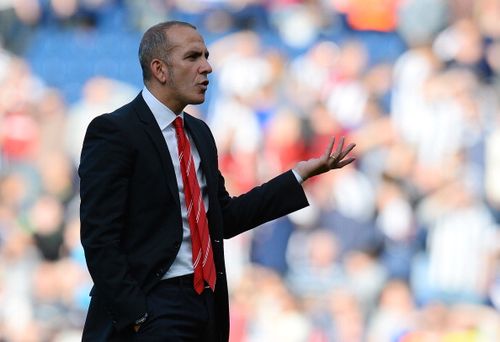
Paolo di Canio at Sunderland: What went wrong?

Paolo di Canio: didn’t last long at Sunderland
There are some who naturally attract controversy; they just can’t help it. They are the flame to controversy’s moth, and if there was ever one such as this, it is definitely ex-Sunderland manager Paolo di Canio.
Ever since his playing days, the feisty Italian has been “noticeable” to put it mildly. Having played for teams such as Lazio, Juventus, AC Milan, Napoli, Celtic and West Ham United among others, he had been quite the journeyman. But, it seems, controversy is his constant companion, and he carried it along wherever he went. His career has seemingly oscillated between “genius player” to “controversy-courting fascist”.
Two instances from his playing career typify and summarise this trait. The first is a testament to the Italian’s talent – while playing for West Ham in a league match versus Wimbledon F.C.(now rechristened Milton Keys Dons), di Canio produced a moment of magic that still makes football fans gasp in admiration, and makes Hammers fans sigh with fond remembrance. Receiving the ball from the right, di Canio struck it on the volley with both feet off the ground, seemingly defying the laws of physics by producing that much power from such a position. The goal was, rightly, voted as the Premiership’s goal of the decade by Sky Sports’ fans in December 2009.
The other incident sums up the controversial nature of di Canio’s playing career. The Italian, a self-confessed fascist, made the infamous “fascist salute” on at least two well-documented occasions while playing for Lazio. He stated that it was a “form of expressing a bond with the Lazio fans (a large part of whom profess the right-wing ideologies)”.
When di Canio moved into management in 2011, it was thought that age might have mellowed the Italian, or at least given him much-needed perspective; but it was to no avail. After his tumultuous, yet successful, spell at Swindon Town, di Canio was catapulted to the big-time league, so to speak, when Sunderland’s owner and chairman Ellis Short decided to replace outgoing Martin O’Neill. This time around, di Canio made his impact on the club even before he set foot into the club, with former UK Foreign Secretary David Miliband resigned from his positions as vice-chairman and non-executive director of Sunderland in protest. This might have well been an omen for things to come.
What was good
It was not all bad for the Italian. When he assumed control of Sunderland, they were precariously poised in the league – just one point above the relegation zone. In his first match in charge, he suffered a narrow defeat to Chelsea; but even as Sunderland lost, the fans felt that the team had put up an encouraging showing. His second match in charge though, assured that his time in charge of the club would never end in anonymity, if nothing else.
His Sunderland team beat fierce rivals Newcastle United 3-0 in the Tyne-Wear Derby. That prompted the infamous celebrations by di Canio, all of knee-slides, arm-waving and fist-pumps. Ultimately though, Sunderland beat the drop, and guaranteed Premier League football for another season at least. Many sections of the fans also viewed di Canio’s strict enforcement of discipline as a good thing, believing that the modern-day footballer to be more interested in the luxuries that the game brings, rather than playing.
He enforced curfews and deadlines for the players before matchday and brought-up a strict “do’s and don’t’s” list. It looked like the Italian’s no-nonsense reign would reap dividends in the long run. His focus on fitness was also hailed in many quarters of the game. Sunderland fans also didn’t have to worry about transfer window inactivity as di Canio brought in 14 new recruits, ensuring that the squad will have the required depth to avoid the drop in the new season, and hope for maybe more.